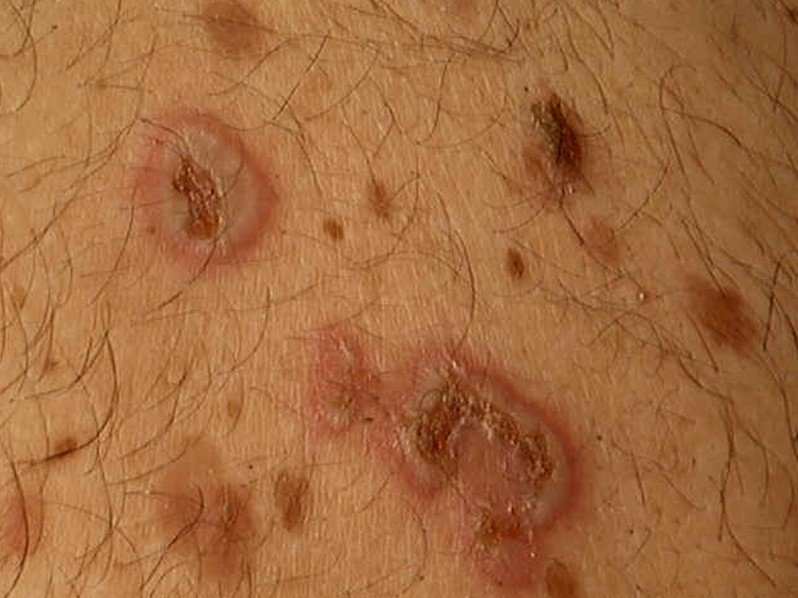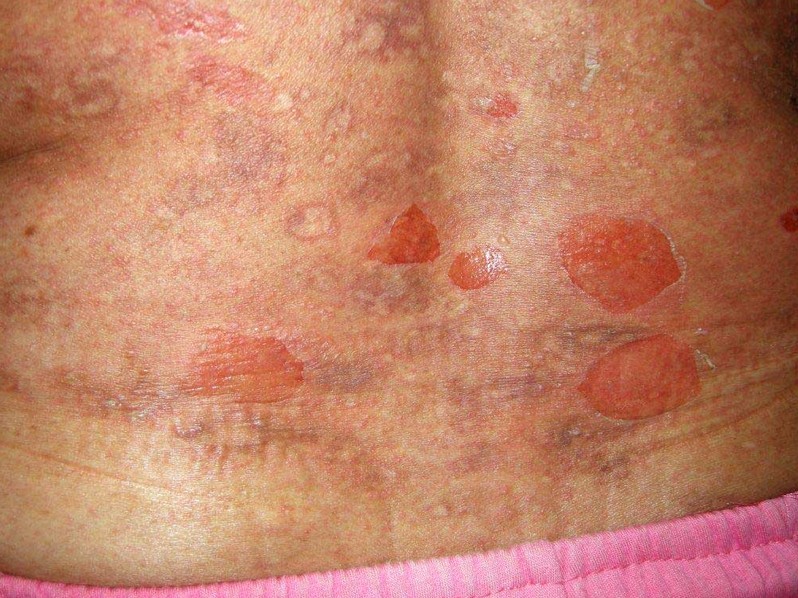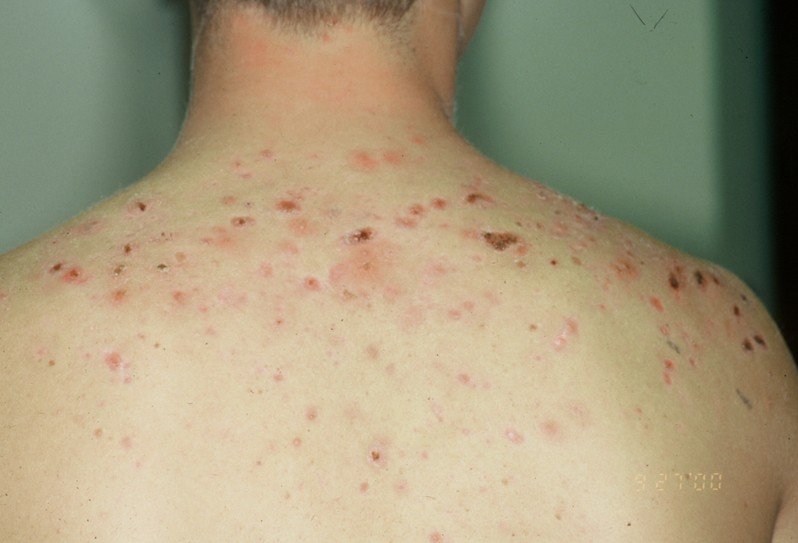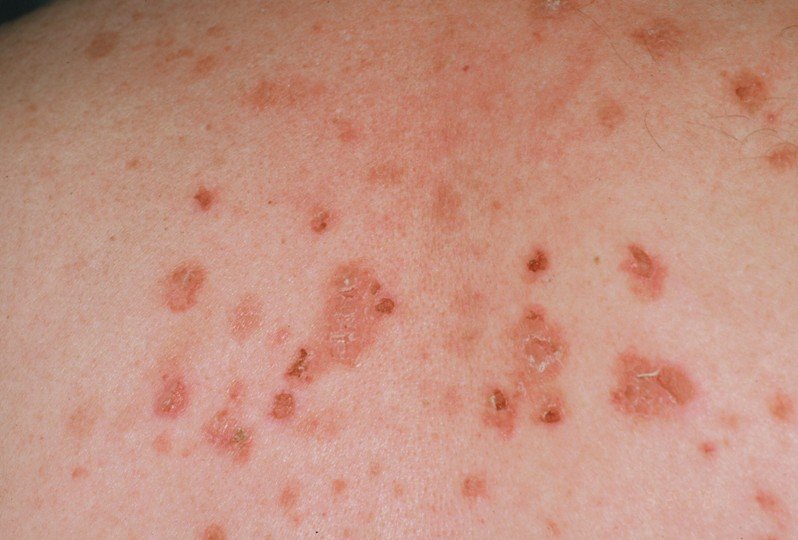Pemphigus Foliaceus
What is Pemphigus Foliaceus?
This is a rare autoimmune disease that affects the top layer of your skin and mucous membranes although it is mainly confined to your skin. Anyone can develop this disease but it mainly affects people over the age of fifty. Many times when a person has autoimmune skin disorders it often happens in occurrence with other different autoimmune disease.
The top three autoimmune diseases a person normally has when pemphigus foliaceus often happens are:
Lupus erythematosus
This is a collection of autoimmune diseases in which your immune system becomes hyperactive and attacks your healthy normal tissues
Thyomama
This is a cancer of your thymus gland, which plays an important role in your immune system.
Myasthenia gravis
This is a chronic autoimmune neuromuscular disease
Pemphigus foliaceus is the normally the benign form of pemphigus.
Pemphigus Foliaceus Symptoms
When a person has pemphigus foliaceus the first symptoms that they have are usually the development of blisters on their back and chest. The blisters will usually form when you rub your skin. The blisters are filled with fluid and because they form in the upper layers of your skin they can easily rupture. In time these blisters can spread to other parts of your body and develop into scaly, crusty sores as they begin to heal. They may also have a red, inflamed base and have a localized pain or burning sensation feeling. Most of the time people who have this skin disease are healthy but tend to have episodes of these skin blisters that can last for months, even years.
Pemphigus Foliaceus Causes
As mentioned, this is an autoimmune disease that is rare. Usually when your immune system is healthy it is sensitized only to proteins that are foreign to your body like viruses and bacteria. When your immune system becomes reactive to a protein that is produced by your body you develop autoimmune disease. When a person has pemphigus foliaceus this particular protein that your body becomes reactive to is desmoglein 1. It is a protein that is produced by the cells in your epidermis, which is the top layer of skin. There are also two other pemphigus diseases in which your body also becomes sensitized to other forms of desmoglein proteins.
It is a disease that is unpleasant to have and look at but it is not serious nor is it life threatening and the reason is that the protein that is responsible for this rare skin disorder is present only in certain cells on the top layer of your skin.
Diagnosis
In order for your dermatologist or physician to determine if what you have is pemphigus foliaceus a skin biopsy is generally required. This skin biopsy will show typical features of separated rounded-up keratinocytes, which are called acantholytic cells that are within the blisters in the upper layers of your skin if you have pemphigus foliaceus. They will use direct immunofluorescence staining on the sections of skin biopsy to reveal antibodies to confirm the autoimmune disease. There are some cases where the dermatologist or physician where they can have blood test run to detect circulating antibodies. This test is called an indirect immunofluorescence.
Pemphigus Foliaceus Pictures
Images, Photos and Pictures collection of the skin condition Pemphigus Foliaceus…
Pemphigus Foliaceus Treatment
There are two ways that you can treat pemphigus foliaceus and that is by either suppressing your immune system or with medications. Once they are healed you can have spontaneous remission of pemphigus foliaceus occurring and can lead to the current skin lesions healing without new ones appearing on your skin. Even when you are in remission pemphigus foliaceus can reappear at any time.
You can treat the symptoms of pemphigus foliaceus by taking immune system suppressing medication like prescription corticosteroids. Generally when you are taking these medications it is only for a short period of time because if you use them long term they can have some negative side effects like an increased risk of developing cataracts and osteoporosis, which is a disease where your bones start to become weak. In addition to corticosteroid medications you can also use anti-malarial medications or topical antibiotic creams. Your physician could also prescribe a medication used to help the lesions heal and reduce skin inflammation and risks of infection called nicotinamide. Because sun exposure can trigger skin lesion development there are some people who have pemphigus foliaceus can benefit from a high level SPF UV protection.




